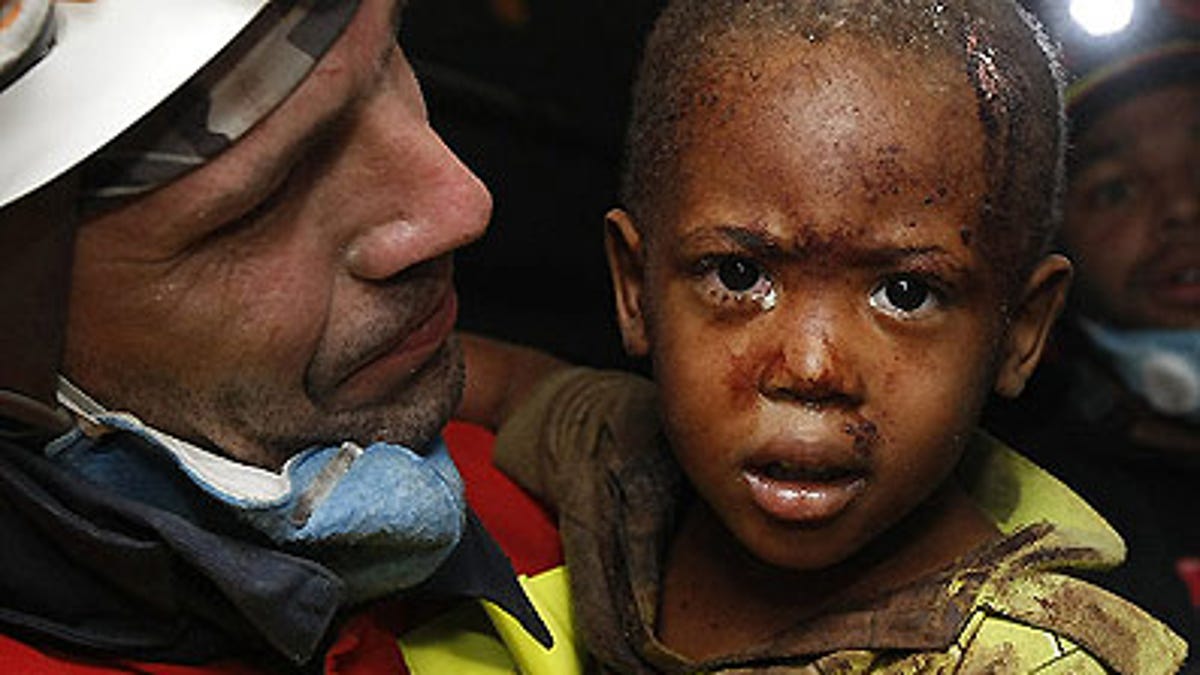
AP
In 2007, Venezuela leader Hugo Chavez made a triumphant appearance before adoring crowds in Haiti. After landing at the airport, his convoy took hours to get to the National Palace, with jubilant well-wishers blocking his way. He brought tidings of joy to the Haitian people- a promise to bind his country together with Haiti and Cuba in a South American love knot. Fidel Castro participated in the jamboree by telephone, and was also represented by his Vice President, Esteban Lazo.
Chavez pledged support to the people of Haiti free from the strings attached by “countries from the north” and decried the U.S. as “the cruelest empire – the most cynical, criminal murderous which has ever existed.”
The good news for Haitians today is that the murderous empire in question is moving heaven and earth to provide $100 million in aid, 5,000 troops, an aircraft carrier that can create drinking water, and mountains of food and medicines to its tragic earthquake victims. And that’s not even including the tens of millions of dollars being raised privately. Venezuela, not to be outdone, sent 50 doctors and other workers, and has promised 25 more, in addition to some food and supplies. They also guarantee continued doses of political unreality.
In that they are joined by Cuba. Fidel Castro, never at a loss for words, responded by the tragic events in Haiti by encouraging his countrymen to “think about why Haiti is so poor. Why its people depend almost 50% of family remittances that are received from abroad.” Castro, not surprisingly, has the answer. “Haiti is a net product of colonialism and imperialism…”
Germany-based Transparency International has a different answer. In 2006 that organization named Haiti the most corrupt on earth; the director drew a direct line between poverty and corruption saying “Corruption traps millions in poverty.” The heinous 29-year rule of “Papa Doc” Duvalier and his son plunged what had been a tourist mecca into grinding poverty, leading Haiti to become the poorest nation in the Americas. Today some seventy percent of Haitians live on less than $2 per day, and approximately half the population is unemployed.
Corruption is also partly to blame for the devastation caused by the recent earthquake. Seismologist Roger Bilham of the University of Colorado at Boulder is quoted in Science Daily as saying “Porte-au-Prince is probably one of the worst constructed cities in the world, and even the presidential palace collapsed.” He also said that one of the reasons for the destruction was corruption in the construction industry.
“Never let a serious crisis go to waste” Rahm Emmanuel famously said. The U.S. should use this terrible tragedy in Haiti to finally engage with this impoverished nation, to help rebuild not only its buildings but its institutions. Surely through volunteer organizations and with the help of corporations we can help re-establish schools and hospitals, and encourage the government to provide enticements to U.S. developers. The goal should not be simply survival but reconstruction, and ongoing economic growth. Let us show the world that the democratic and economic freedoms upon which our country were built can be adopted by others, and that peoples so engaged can see their fortunes reversed. Haiti would clearly not be the only beneficiary. Heaven knows, the image and influence of the U.S. in South America could use some polishing.
This is a tiny island nation. If we can’t turn around the attitudes and fortunes of these desperate people, who can see the benefits of partnership with the U.S. right now in the streets, what hope can we possibly have of inspiring better relations with the people of Afghanistan?
Liz Peek is a financial columnist and frequent contributor to the Fox Forum. For more visit LizPeek.com.
